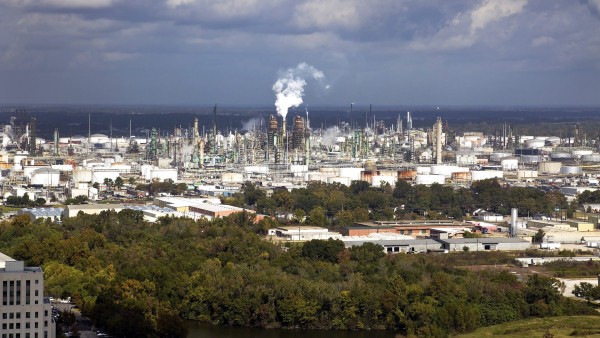Structural Racism Drives Higher COVID-19 Death Rates in Louisiana, UMD Study Finds
Black Families More Likely to Face ‘Stressors’ That Increased Vulnerability to Disease
Disproportionately high COVID-19 mortality rates among Black populations in Louisiana parishes are the result of longstanding health vulnerabilities associated with institutional and societal discrimination, according to new research conducted by an interdisciplinary University of Maryland team.
“Our results suggest that structural racism and inequities led to severe disparities in initial COVID-19 effects among highly populated Black Louisiana communities, and that as the virus moved into less densely populated Black communities, similar trends emerged,” the researchers concluded in a study published today in Proceedings of the National Academy of Sciences.
The research was conducted under the mentorship of Clark Distinguished Chair Deb Niemeier and Associate Professor Jennifer D. Roberts in the Department of Kinesiology. The study’s lead authors include graduate students Kristen Croft of the Department of Civil and Environmental Engineering, Nora Hamovit of the Department of Biology and Guangxiao Hu of the Department of Geographical Sciences.
Over generations, discrimination in employment, education, housing and access to medical care led to higher risks of chronic illnesses including asthma, diabetes and obesity among Black communities, as well as a higher likelihood of suffering a stroke—all factors that the U.S. Centers for Disease Control and Prevention warn increase the likelihood of becoming severely ill from COVID-19, the authors noted.
Black communities in America encounter inadequate housing and lower rates of home ownership, reduced access to health care and lower rates of employment. As exemplified by Louisiana’s “Cancer Alley,” Black families are more likely to live in so-called “fence-line” neighborhoods near industrial facilities that expose them to pollutants, and typically encounter reduced air and water quality compared to white Americans. Black families are also more likely to be uninsured and face higher rates of unemployment.
These and other factors, all reflecting decades of structural racism, add up to a combination of stressors that undermine health and, in the case of COVID-19, have made Black communities particularly vulnerable.
To obtain their findings, the team members identified the spatial distribution of social and environmental stressors across Louisiana parishes, and used hotspot analyses to develop measures of aggregate stressors. Then they tracked the correlations among stressors, cumulative health risks, COVID-19 mortality rates and the size of Black populations across Louisiana.
The results suggest that COVID-19 mortality rates initially spiked in Black communities with high population densities and moderate levels of aggregate stress, but over time, increased in less densely populated Black communities as well.
“We find that Black communities in Louisiana parishes with both higher and lower population densities experience higher levels of stressors leading to greater COVID-19 mortality rates,” the researchers wrote. “Our work using the COVID-19 pandemic, particularly as observed in Louisiana, makes clear that communities with high levels of social, economic and environmental racism are significantly more vulnerable to a public health crisis.”
The study’s graduate student authors collaborated as part of the UMD Global STEWARDS (STEM Training at the Nexus of Energy, Water Reuse and Food Systems) training fellowship program. Funded by the National Science Foundation, it is directed by Professor Amy R. Sapkota of the School of Public Health; civil and environmental engineering professor Allen Davis is a principal investigator for the program.
Read the paper here.
Story written by Robert Herschbach and originally published by Maryland Today.
Published on Tue, 06/28/2022 - 15:58


